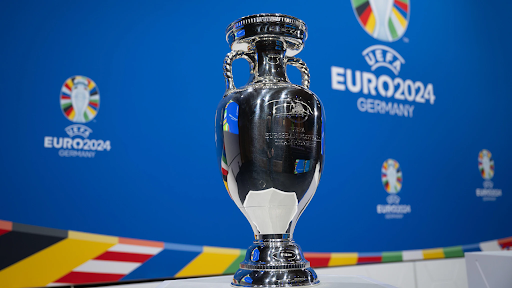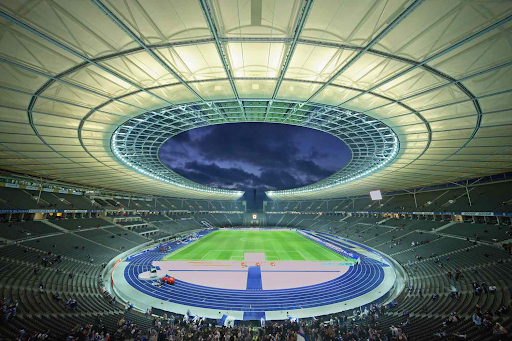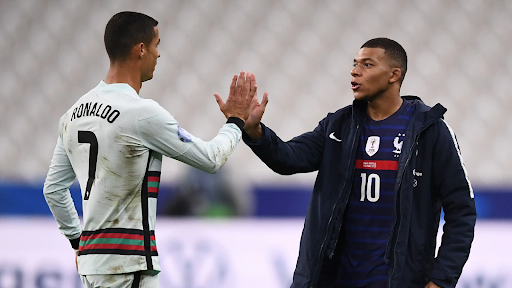UEFA Euro 2024: All you need to know – Dates, Venues, and Format Explainer

For its 17th edition, Europe’s biggest football competition, the UEFA European Championship will return on 14th June, with Germany being the host nation this time around. Played every four years, this tournament brings together the best national teams from across Europe competing for continental glory.
Over the last year, 53 European nations have fought hard in an intense qualification battle, which saw 23 teams earning tickets to the mega event and joining the hosts, Germany.
Besides the usual frontrunners for the title, this edition of the Euros will also see some not-so-common names in this competition. Since becoming an independent country, Georgia will be playing in their first-ever European Championship. On the other hand, Serbia will also be playing their first Euros since the separation of Serbia and Montenegro.
A total of 51 matches will be played across 10 host cities with three-time champions Germany taking on Scotland at the Allianz Arena in Munich in the tournament opener
Dates
The tournament will begin on 14th June and end on 14th July. There will only be one match on the opening day with Germany and Scotland kickstarting the tournament. But from the next day onwards, there will be three matches in a day till the group stage ends.
The group stages will run till 26th June, after which there will be a two-day resting phase, before the Round of 16 starts on 29th June. The first knockout round will conclude on 2nd July, while the quarter-finals will start on July 5. The two semi-finals will be played on July 9 and 10 respectively, with the final to be played in Berlin’s Olympiastadion on 14th July.
Venues

The final will be held in Berlin’s Olympiastadion
While the last edition was played in 11 cities across various European countries, this edition will be played in 10 cities in Germany.
Berlin’s Olympiastadion will host six matches, of which three are knockout games, including the final. Meanwhile, the Cologne Stadium will host five matches, with Switzerland playing two of their three group-stage matches here.
The iconic Signal Iduna Park, home to Borussia Dortmund, will be hosting six games, including one of the semi-finals and two matches of Turkey. The Dusseldorf Arena, which did not host any matches during the 2006 UEFA Euro, has been assigned five games.
The Frankfurt Arena will also host five matches, which include one Round of 16 match and two games of Slovakia. Arena AufSchalke in Gelsenkirchen will host four matches, one of them being the highly anticipated clash between Spain and Italy.
Hamburg’s Volksparkstadion will stage five matches, with Czechia playing two of their games in this stadium. The Leipzig Stadium has been assigned four games, including another mouth-watering encounter between the Netherlands and France.
The Stuttgart Arena will host five matches, including two matches in Hungary and one quarter-final while the Allianz Arena in Munich will host five matches, including the opening clash and one semi-final.
Teams
The competition will have 24 teams once again in this edition. Of the 11 teams who have previously won the Euros, nine will be participating this time – Germany, Spain, Italy, France, Czechia, Portugal, Slovakia, Netherlands, and Denmark. The only two exceptions are Greece – who could not qualify and Russia – who have been suspended for the invasion of Ukraine.
The other 15 nations are – Scotland, Hungary, Switzerland, Croatia, Albania, Slovenia, England, Serbia, Poland, Austria, Belgium, Romania, Ukraine, Turkey and Georgia. Georgia is the only team from the 24 who will be making their debut in this edition.
Format Explainer
The 24 teams have been divided into six groups, with each group containing four teams. In the group stage, every team will play against every other team of the same group, and so, each team will be playing a total of three group games.
At the end of the group stages, the top two teams from each group will automatically qualify for the Round of 16. However, with the number of groups being six, only 12 of the 16 slots will be filled using the top two positions.
For the remaining four slots, it will come down to the comparative points table of every group’s third-placed team. Besides the usual points table for each group, another separate table for the third-placed side of every group – 6 teams in total – will be used. The top four of those six teams will qualify for the Round of 16.
From there onwards, the tournament will follow its usual course. 16 teams will be filtered to 8 in the quarter-finals, then 4 in the semi-finals, and finally, 2 teams will be involved in the crucial final on 14th July.
Star Attractions

Cristiano Ronaldo is likely to play his last Euros, while Kylian Mbappe is yet to score in this competition
There will be plenty of star attractions in this tournament, but the biggest attraction from the new-age superstars will be Kylian Mbappe. The FIFA World Cup-winning superstar, who recently signed for Spanish giants Real Madrid, is missing the European Championship in his trophy cabinet.
Although he is just three goals away from scoring 50 international goals, it is rather strange that Mbappe has never scored a goal in this competition. He did not make his France debut during the Euro 2016, while in Euro 2020, not only did he fail to score a goal but also missed a penalty.
Among those superstars who might be playing their last-ever Euros, Cristiano Ronaldo will be the biggest attraction. Though he did win this tournament in 2016, Ronaldo, who is now 39 years of age, will attempt to avenge the heartbreak of the 2022 FIFA World Cup by adding another international trophy to his resume.
The other star attractions will be England’s Harry Kane and Belgium’s Kevin De Bruyne. Both players have been legends for their nations, with Kane scoring 63 goals in 91 appearances for England, and De Bruyne scoring 27 goals in 101 games for Belgium. However, neither have won a trophy for their country yet.


